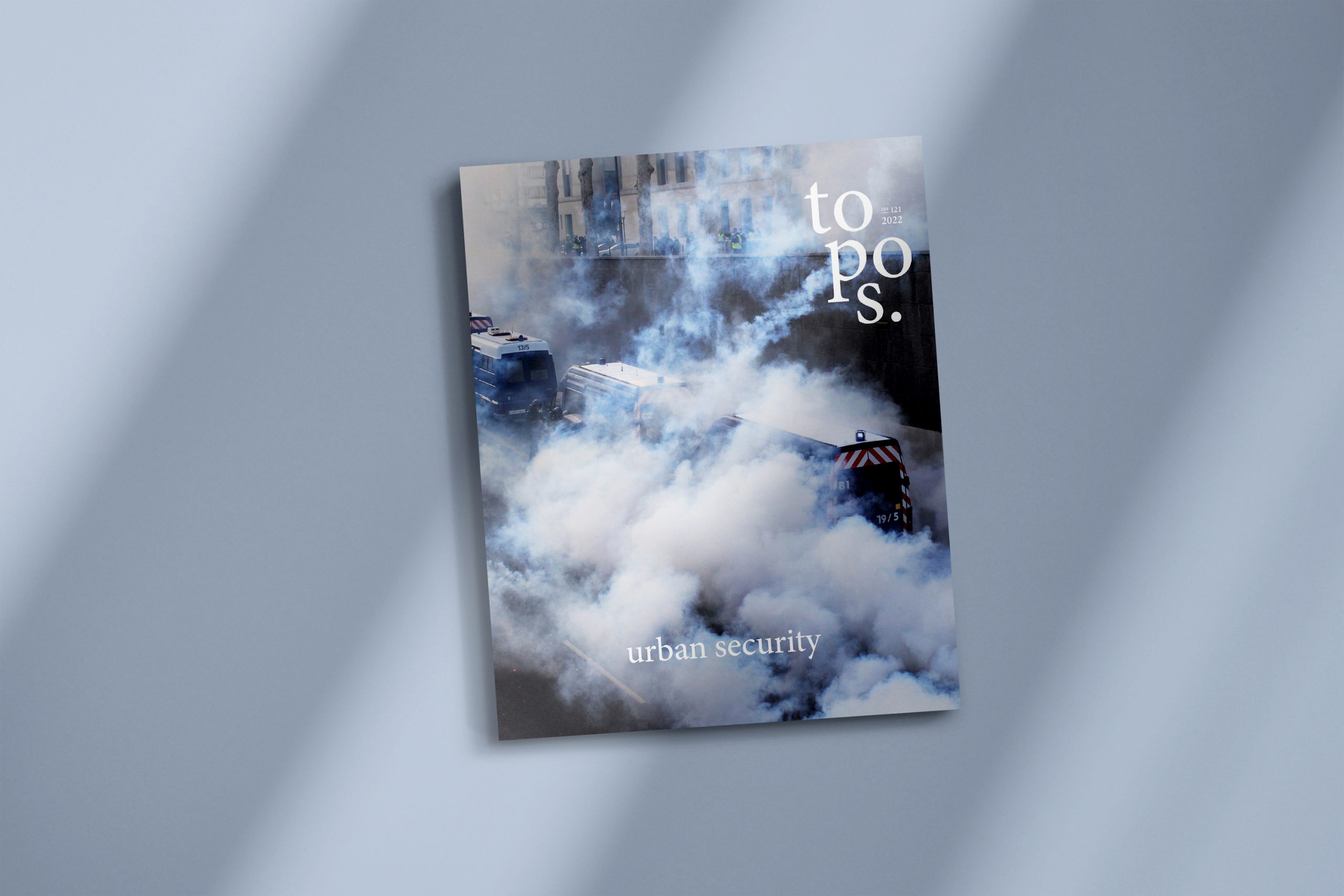Urban Security – topos 121

Our current topos-magazine deals with varied aspects of “urban security”. Read more about our latest issue in the editorial.
Billboard
Skyscrapper
Halfpage
This issue of topos deals with the topic of urban security. How safe are our cities today and what are the things and factors that make a city safe? Do surveillance cameras really make our cities safer? Security from crime is not the only aspect this issue covers. It also looks at the development of emergency services and emergency calls and takes a trip into virtual space. We take a look at the impact on our security of companies whose business model is to collect as much data about us as possible. Issue 121 tries to find answers to these and many more security related questions. Get a free preview of the current issue of topos here.
Is the cost of security always freedom? Shouldn’t we, as a civilised, modern society, be able to create security without giving up our liberal values and norms? This topos is a special issue because we have dealt with the topic of security in metropolises – urban security: a challenge that concerns us all.
Security – a historical, climatic, social and political issue
At the beginning, it seemed like a perfectly feasible topic. After all, much of our world already revolves around security. We often fear what we know and almost always what we don’t know. However, it quickly became apparent that we were dealing with a very extensive network of topics. So we decided to take a proper, broad look.
In this issue we deal not only with climate, but also with light and darkness as well as many political topics. We also delve into the exciting history of emergency calls and firefighting. We continue with a look at the urban safety situation for women and the daring leap into cyberspace. The, if you still haven’t had enough, the issue introduces you to some characters who have dedicated their lives to urban safety and gives you an exiting angle on the “Pursuit of Happiness”. In the end, security is a particular challenge in modern, digitalised and sustainable metropolises.
An apparent solution: preventing crimes with surveillance
We learned a lot and were surprised how difficult it is to avoid the topic of “cameras”. We were not interested in walking unseen through a big city, but rather in security solutions ans concepts other than the surveillance camera. That was not easy. It almost seems as if most metropolises are more interested in monitoring everyone than in individual crime prevention. However, a camera will only thwart a crime in the rarest of cases, at least that is our thesis.
Therefore, we wanted to set the stage for the other solutions. Surprisingly, we had to conclude that there do not seem to be as many innovative security solutions for metropolises as we initially thought. This – and also the realisation that we have to stand up for our urban security – gave us pause for thought. Shouldn’t the governments of our world act in the interest of the people and use all the power of the state to ensure security for each individual and our society? Read for yourself how much it is up to the individual when it comes to risk prevention. We hope that this topos will enable you to look beyond your own nose.
New challenges require innovative approaches within urban security
If we want to create and inhabit safe cities in the future, we need to be much more pro-education, pro-housing and pro-self-determination than we have been in the past. Our metropolises are facing both familiar and new challenges, not least due to a massive loss of wealth and high inflation. This issue can hopefully make a small contribution towards innovative urban planning approaches and open discourse, and away from deadlocked and often useless solutions.
For example, cities in the future must not only be climate resilient, inclusive and more digitalised, but above all cyber resilient, climate neutral and full of prosperity. Crime will not bring us closer to these goals, and even more surveillance cameras certainly won’t either. Responsibility is the keyword. Only those who take responsibility for themselves, and their environment, can make a metropolis a better place. In doing so, we must never use our freedom as a currency to buy security, because as Aristotle once said: “He who prefers security to freedom is rightly a slave.”
Get the topos 121 – Urban Security – here.
Our previous issue revolved around energy: it took a closer look at how the energy consumption of cities around the world is composed. Take a look yourself in our editorial for the issue 120 “energy cities”.












